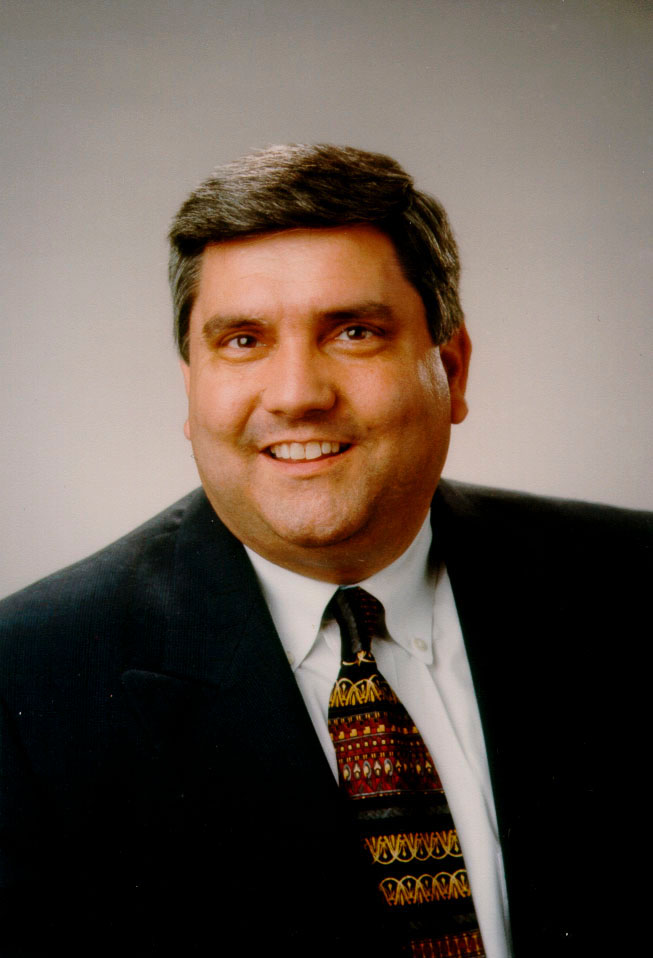
DALLAS (BP)–The doctrine of soul competency has been distorted by moderate Baptist leaders — and used to create a “wedge between Jesus and the Bible” — a Texas pastor said in an open letter to the Baptist General Convention of Texas’ executive director.
The pastor, David Allen, of MacArthur Boulevard Baptist Church in Irving, Texas, said in a Jan. 23 letter to Charles Wade of the BGCT, soul competency — a doctrine dealing with the accountability of each person before God — “cannot be used to deny plain biblical teaching … .” The letter also was released to various Baptist leaders and to the media.
MacArthur Boulevard Baptist Church, a 700-member congregation in metro Dallas, severed its relationship with the Baptist General Convention of Texas in a unanimous vote last September, acting upon a recommendation from the congregation’s denominational study committee. The church had been affiliated with the BGCT since its founding in the 1950s and now is affiliated with the new Southern Baptists of Texas Convention.
Allen told Baptist Press he decided to write a letter to Wade, “as one Texas Baptist to another,” after the BGCT continued to distance itself from the Southern Baptist Convention at last fall’s BGCT annual meeting by reducing Texas Cooperative Program gifts to the SBC by more than $5.3 million. Specifically targeted by the BGCT were the SBC’s six seminaries, its Ethics & Religious Liberty Commission and its Executive Committee, which acts in behalf of the SBC between annual meetings.
Wade and other BGCT leaders are using “a truncated form of the doctrine of soul competency to justify what they’re doing,” Allen told Baptist Press.
Allen said he attempted in his letter “to point out that Dr. Wade and the BGCT have erred from a historical standpoint as well as a theological standpoint in their understanding of and their presentation of the doctrine of soul competency.”
Baptist Press contacted the BGCT offices in Dallas for a response by Wade, but at the Jan. 25 deadline no response had been forwarded.
Allen, in addition to serving as MacArthur Boulevard Baptist Church’s pastor, is the W.A. Criswell Professor of Expository Preaching at Criswell College in Dallas. Allen also has been a trustee at his alma mater, Southwestern Baptist Theological Seminary, the past eight years.
Among the points Allen waged in his letter:
— “… Baptists have seldom known or advocated a view of soul competency at the expense of biblical authority or church community,” Allen wrote. “In the eighteenth and nineteenth centuries, General and Particular Baptists affirmed the fact that one’s conscience could be mistaken and individual freedom must not be used as a means to sidestep biblical authority and doctrine.” Wade and other BGCT leaders have “retreated to historical revision,” Allen wrote in his letter, “and sought to justify your stance against the SBC through a distorted espousal of ‘soul competency.'”
— Various Baptist luminaries have balanced soul competency with biblical authority, Allen wrote, citing the writings of the late Herschel Hobbs and E.Y. Mullins, who led, respectively, in the development of the SBC’s 1963 Baptist Faith and Message statement of beliefs and its 1925 predecessor. Both Hobbs and Mullins held that soul competency, as Allen put it, is “never to be understood in the sense of independence from the Scriptures, nor should it mean one can believe anything he chooses and still call himself a Baptist.”
— Soul competency is being used by “some uninformed or unprincipled Baptist scholars,” Allen wrote, “to ‘trump’ difficult texts (difficult in their minds only) such as the role of women in the marriage relationship, the issue of women serving as senior pastors of local churches, whether God ordered the slaughter of the Canaanites, etc.” A “host of our Baptist forefathers would be nothing short of appalled to see how this precious Baptist conviction is distorted by using it to deny some things we as Baptists have always believed,” Allen wrote.
— Followers of Jesus “know nothing historically or theologically about Jesus except what you know from the Bible,” Allen wrote. The views of liberals and many moderates about Jesus and the Bible “lean heavily on some form of Kierkegaardian existentialism, postmodern experientialism or new revelation of an aberrant Charismatic sort,” Allen wrote.
— The phrase that was not included in the Baptist Faith and Message as adopted by the SBC in its June 2000 meeting in Orlando, Fla. — that “the criterion by which the Bible is to be interpreted is Jesus Christ” — was never intended to be used by liberals and moderates “to create a wedge between Jesus and the Scriptures” as happened after the 1925 BFM, which had no such “wiggle room” phrase, was revised in 1963, Allen wrote.
Recapping historic Baptist belief, Allen noted, “What Scripture says, Jesus says, whether it is by His own lips as recorded in the Gospels, or through the mouth of any other biblical writer. The whole of biblical revelation has always been the final authority for Southern Baptists. One’s experience of Jesus must always be based upon divine revelation.”
The “criterion” phrase was replaced to be “more in keeping with the historic Baptist confessions of faith, including the 1925 confession,” Allen wrote to Wade. “The claim that this replacement somehow converts the 2000 BFM ‘to the status of a creed’ as you claim is completely erroneous.”
— While Wade and other BGCT leaders have claimed that the SBC has made a “creed” of biblical authority, they meanwhile have adopted the “banner of ‘soul competency'” and “oddly and ironically elevated it to creedal status,” Allen wrote to Wade, “in your headlong pursuit to distance Texas Baptists from the SBC.”
–30–
(BP) photo posted in the BP Photo Library at http://www.bpnews.net. Photo title: DAVID ALLEN.

















